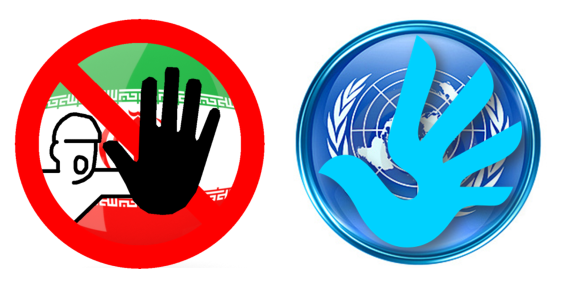Warning – House of Cards spoiler ahead.
In the last season, Frank Underwood “requests” Jacky Sharp to do all she can in order to impeach the president. Her reaction is that Frank’s request is “just shy of treason” to which Frank pragmatically answers “just shy, that’s politics.”
Remember his answer while reading this post…it will help you understand.
UN Appoints Iran to Key Human Rights Committees
The UN appointed Iran to several key committees on human rights including the “Commission of the Status of Women.” If reading this sentence sounds legitimate to you, you must be an Iranian hardliner or an experienced politician.
The state of Iranians’ human rights, even under President Rouhani’s presidency, represents one of the most repressive regimes in the world. In our earlier post, we outlined how Rouhani is taking a stand on women’s rights even if it is against Supreme Leader Khamenei but his efforts have still not reached the women of Iran.
The outcry by human rights watch groups was answered harshly by Tehran with praise for the country while claiming that thousands of NGOs in Iran are “actively pursuing their goals in different areas such as social, economic, environmental, women and human rights”.
Human Rights Boiling Over in Tehran
Following the latest report of UN Special Rapporteur for Iranian human rights, Ahmed Shaheed, which blasted, one gets a decidedly weird feeling that either the UN bodies are having big problems communicating with each other or that it’s simply politics.
The scathing report which proves that human rights are not yet improving in Iran despite Rouhani’s promises to do so was met with denials and denigrations from Tehran. Although Tehran’s response might be based on lies, it sounds like a legitimate form of defense.
Since then reports of human rights transgressions leak out daily. Protesters have hit the streets and are picketing parliament and the infamous Evin prison and violence has taken its toll. Prison guards, bolstered by IRGC troops attacked the political prisoners leading to over 30 wounded while Rouhani kept conspicuously quiet.
Insult Or Just “Politics”?
Placing Iran on any human rights committee is an insult to all the victims of human rights in Iran and around the world. Asking Iranian diplomats, mostly men, to work within a UN committee to strengthen the rights of women is simply outrageous. Yes, Rouhani might be championing this cause but the facts are still dismal.
So why would the UN do so? Two reasons come to mind and both are political.
The UN might want to send a supporting message to Rouhani to help him deal with Khamenei and his IRGC cronies.
Or the UN might want the Iranians to work from within human rights committees in order to make them feel that they are not on opposite sides.
In any case, the victims of human rights abuses are probably turning in their graves or swallowing the bitter taste of being the pawns of ruthless politicians once again.




